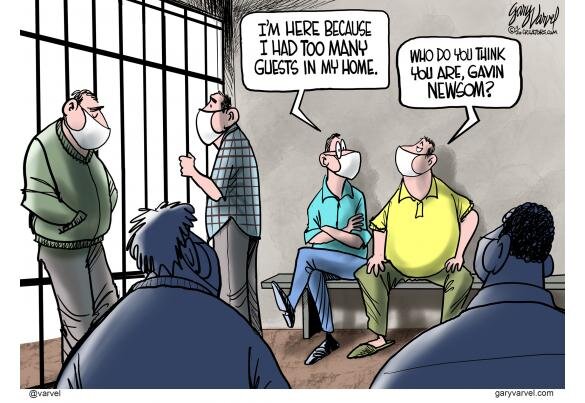That's a big 'could', it could also lead to a stronger more resilient strain of the virus, I can see it now, people get that first shot and think they're immune and go around without masks giving ammunition to the virus to mutate resistance to the vaccine...
That's just one scenario...
While it's true that we've seen how some vaccines of the past, and antibiotics, can help to produce new and stronger strains of a contagion - like MRSA for example - I don't think you're properly weighing the risk factor of the alternative: what we have in the US right now....skyrocketing infections of millions of people and animals from coast to coast. The more hosts that get infected with the virus, the more likely it is to mutate, and the more likely it is that one of those mutations will be even worse than the original strain. Our incompetent national response to this virus is imperiling everyone else on this planet.
Halting the unchecked spread of this virus must be our top priority, and a vaccine is the best way to do that. Virologists have learned why previous vaccine efforts have on occasion led to stronger virus strains, and
they now know how to minimize that risk. An unvaccinated population taking inadequate safeguards - the situation we're in right now - is the far greater risk to world health.
I think what we need more of is perseverance than too much hope, I doubt by this time next year all is well and back to pre 2020 normalcy, things just don't happen that fast, especially with the situation we are dealing with...I'm sorry, I'm not trying to pour rain on your hopes but let's not jump too far with this vaccine and create false hopes from it...There are still too many unknown variables in this situation, this vaccine is promising, time will certainly be the tell...
I think that perseverance and hope tend to go hand-in-hand: millions of people are succumbing to "pandemic fatigue" and a light at the end of the tunnel can fortify their resolve to maintain their safety protocols until a reasonably safe and very effective vaccine is available in a few months. I'm not looking forward to the moderate side effects of these vaccines - a day of serious discomfort in a significant percentage of patients, but vaccines are how we beat yellow fever, polio, measles, mumps, and many other infectious diseases. This is not our first rodeo; there are good reasons why we have our kids vaccinated against dangerous pathogens. And the alternative is unthinkable - to allow the virus to infect the entire population while praying that a more lethal strain doesn't emerge from the billions of opportunities that we give it to do so.
I still have some questions, and I want to see more scientific analysis of these two vaccines. But at this point I see little cause for alarm...except perhaps regarding the rising number of anti-vaxxers in our population (a recent poll found that 35% of US citizens have said that they won't take a coronavirus vaccine when one becomes available). Because the longer it takes to achieve herd immunity, the more people will die, and the more chances the virus will have to mutate into even more deadly, infectious, or vaccine-resistant strains.


